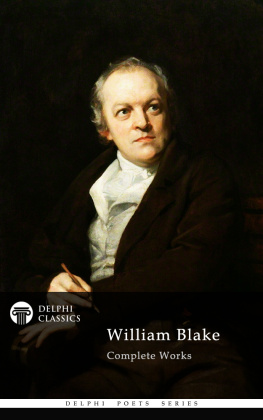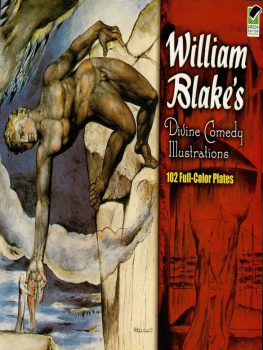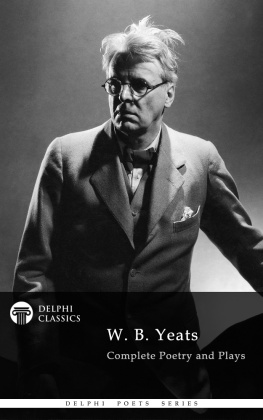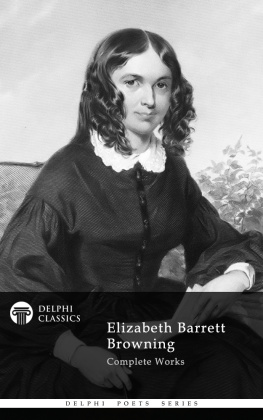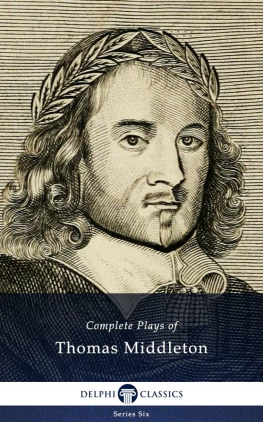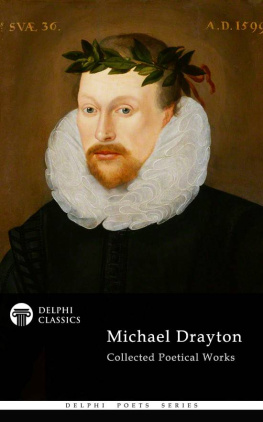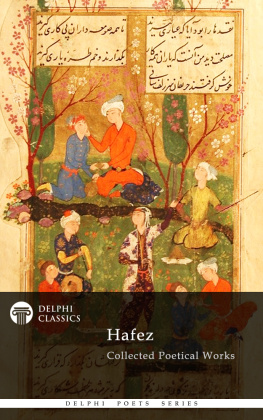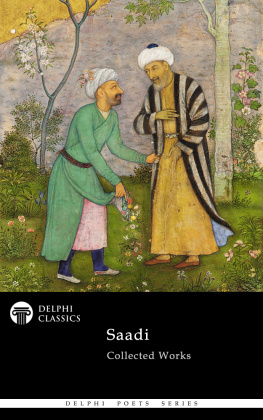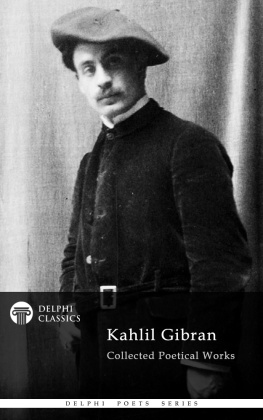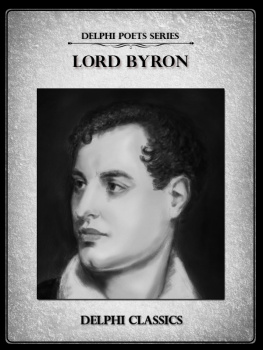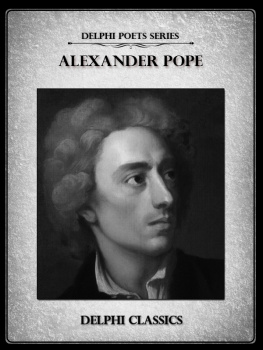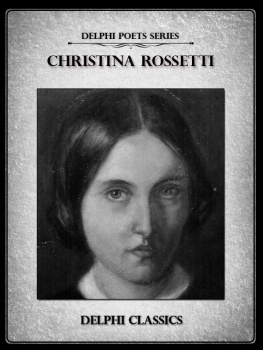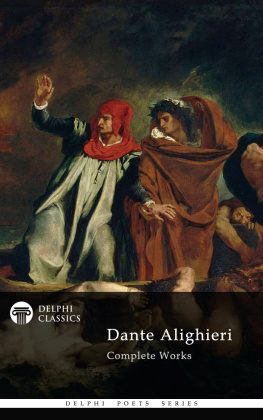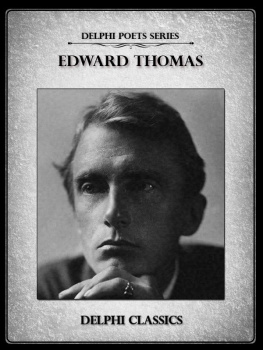

WILLIAM BLAKE
(1757-1827)

Contents

Delphi Classics 2013
Version 2


WILLIAM BLAKE

By Delphi Classics, 2012
NOTE

When reading poetry on an eReader, it is advisable to use a small font size, which will allow the lines of poetry to display correctly.
The Poetry and Prose Books

Broadwick Street, Soho, London Blakes birthplace and home until he was 25 years old. The original building was later demolished to make way for a block of flats.

Blakes house, 1912

POETICAL SKETCHES

William Blake was a poet, painter and master engraver, who was largely unrecognised in his lifetime, although he is now considered as being one of the greatest minds of the Romantic Age. His poetry is charged with a prophetic power and his visual artistry has led many critics to regard him as one of Britains greatest artists. Having lived in London almost all of his life, Blake produced a diverse and symbolically rich oeuvre of poetry and paintings, depicting his own inimitable view of religion and the world he lived in.
Poetical Sketches by W. B. was Blakes first poetry collection to be printed and it contained poems written between 1769 and 1777. Only forty copies were printed in 1783, with the help of Blakes friends, the artist John Flaxman and the Reverend Anthony Stephen Mathew. The book was never published for the public and the copies were given as gifts to the poets friends and family members. It contains nineteen lyric poems and a dramatic fragment, revealing the influence of such writers as Shakespeare, John Milton, Ben Jonson, Edmund Spenser and Horace Walpole, whose The Castle of Otranto had been released in 1764.
In the text, there are several misreadings and errors in punctuation, suggesting that it was printed with little care and was not proofread by the poet. Poetical Sketches was never mentioned in the Monthly Review , which listed every book published in London at the time, signifying that it had been virtually unnoticed.
The collection was seventy-two pages in length, printed in octavo by John Flaxmans aunt, who owned a small print shop on the Strand. Each individual copy was hand-stitched, with a grey back and a blue cover. Poetical Sketches is one of only two works by Blake to be printed conventionally with typesetting. However, the collection never got beyond the proof copy and was never officially published. Of the original forty copies, only twenty-three survive, with the most recent being sold at a London auction in March 2012 for 72,000.

The original title page

John Flaxman (1755-1826) was a British sculptor, draughtsman and later leading figure in Neoclassicism. He was a close friend of Blake and supported him the printing of his first poetry collection.
CONTENTS

A page from the original edition, showing Blakes handwritten corrections
PREFACE.
THE period between 1768 and 1783 may be described as one of utter stagnation in poetry the low-water mark of the eighteenth century, in no part of it very fruitful in verse of a high order. With Mason, Hayley, and Darwin installed as the high priests of the Muses, and a host of satellites of the Charlotte Smith and Jerningham order, pouring forth volumes of mediocre verses, tolerable now neither to gods nor men nor columns feeble echoes of a school which, at its best, drew but little of its inspiration from Nature, how welcome to the ear are the fresh notes of William Blake, recalling here the grand Elizabethan melodies, anticipating now the pathos and simplicity of Wordsworth, now the subtlety and daring of Shelley.
The Poetical Sketches, though not printed till 1783, a year after Cowpers first volume made its appearance, were written, it appears, between 1768 and 1777 the earliest in the authors twelfth and the latest in his twentieth year. They lay in manuscript for six years, before, by the good offices of Flaxman and other friends, they could get into print. The little volume, which extended to only seventy pages, cannot, indeed, be said to have been published. The whole impression seems to have fallen into the hands of Blakes personal friends: certain it is that it attracted no notice whatever from the critics. The book has now become so scarce that no copy is to be found even in the British Museum; and as Mr. Rossetti has confined himself to a few selections, we have thought that a faithful reprint of the whole from a copy that has luckily fallen into our hands, might be an acceptable present to the numerous body of readers now awakening gradually to a sense of the rare merit and originality of the artist-poet, and form a fitting companion volume to the Songs of Innocence and Experience.
Before closing the bibliographical portion of our remarks, we must say a final word respecting the principle adopted by Mr. Rossetti in his reprint of some of these poems in the second volume of Gilchrists Life of Blake. Once for all, while rendering due homage to his genius and rare critical perception, as well as to the great services he has rendered to the fame of Blake, we must firmly protest against the dangerous precedent he has established of tampering with his authors text. Much ruggedness of metre and crudeness of expression he has doubtless removed or toned down by this process : but, however delicately and tastefully done, we contend that the doing of it was unwarrantable nay, that it destroys to a certain extent the historical value of the poems. It was the growth of this mischievous system which prevented the readers of the eighteenth century from enjoying a pure text of Shakespeare ; which to this day, in nine editions out of ten, gives us a corrupt and mutilated text of such writers as Bunyan, Walton, and De Foe, and which has spoilt some of the finest hymns in our language. For where is the process, once admitted as legitimate, to stop? It is not every emendator who possesses the taste and judgment of Mr. Rossetti, and, in a case like the present one, where the original edition is almost inaccessible as a check, what protection has the reader against the caprice or vanity of an editor who does not adhere religiously to his authors text? Mr. Rossetti (though sanctioned by Mr. Swinburne) has no more right to alter William Blakes poems than Mr. Millais would have to paint out some obnoxious detail of medievalism in a work of Giotto or Cimabue; or Mr. Leighton to improve some flaw in the flesh-colour of Correggio. The duty of an editor, in such a case as that of Blakes Poetical Sketches, is confined to the silent correction of obvious clerical errors, and to the rectification of faulty orthography or punctuation, due either to the lax and uncertain spelling of the time, or to the ignorance and carelessness of the printer.
Next page
